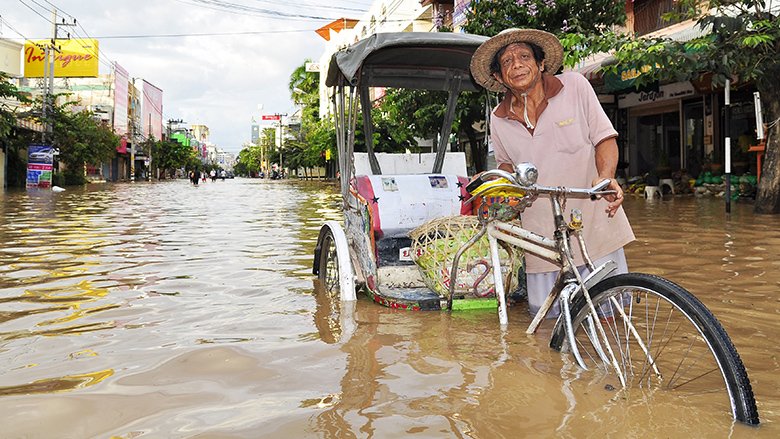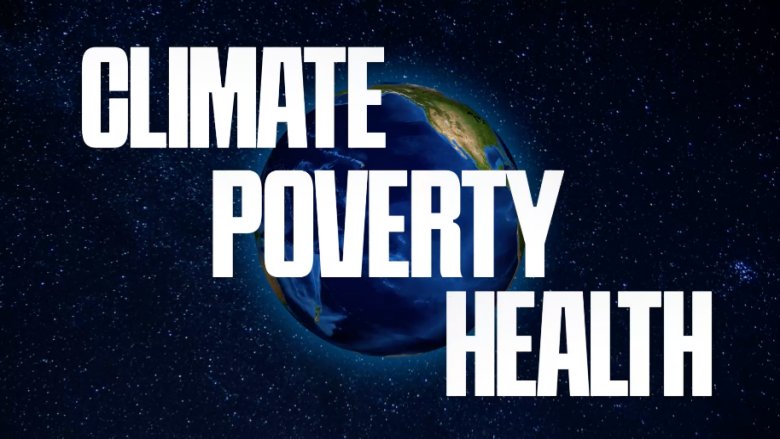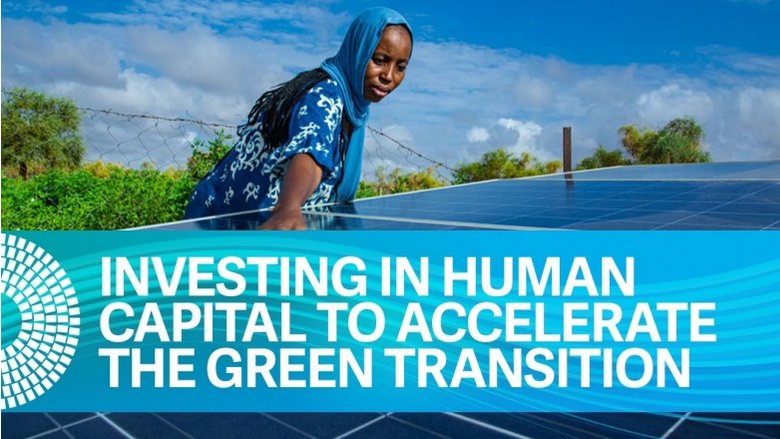
A series of events held at the World Bank Group pavilion during COP29 focused on issues around human development, including a discussion on how education can drive climate action and on new evidence about the magnitude of the climate-health crisis. Other conversations explored how Adaptive Social Protection can help protect human development and reduce future climate risks; and how to support workers’ transition to green economies, particularly in Europe and Central Asia.
Follow the conversation with #COP29 and #InvestInPeople and see the full World Bank COP29 Pavillion Program.
Monday, November 18, 2024 in Baku, Azerbaijan (UTC+4) in the World Bank Group Pavilion (area E, pavilion B1) and Online
11:00-11:45 | Choosing Our Future: Country Lessons on Unlocking Education for Climate Action
Join us to discover how education can drive climate action and resilience. Featuring cutting-edge data and real-world solutions, the event will showcase how countries are empowering, equipping, and skilling young people for climate mitigation and adaptation through behavior change and green skilling. This will be a conversation where research meets practice - and the promise and pitfalls of best practice ideas are discussed. WATCH REPLAY
14:00-14:45 | Labor Policies for Inclusive, Climate-Resilient Workforce in Europe and Central Asia
Social protection is a lifeline for poor people, protecting them from shocks and transitions, including global crises. The World Bank is helping countries implement more environmentally sustainable practices as part of a “green transition.” The event will highlight the impact of this green transition on the labor force in Central Asia and Europe, and how the region has designed social protection and labor policies for a resilient workforce.
16:00-16:45 | The Global Cost of Climate-Health Inaction: Price Tag and Role of Public & Private Sectors
The cost of climate inaction isn’t just in dollars, but in human lives. Join the World Bank Group as they present new evidence on the magnitude of the climate-health crisis, and bring together public and private sector voices to discuss how to scale climate-health finance and action. WATCH REPLAY
17:00-17:45 | Safeguarding Human Development: Mobilizing Climate Finance for Social Protection
Hosted by UNICEF, this event will examine how Adaptive Social Protection can serve as a crucial, yet still underutilized, tool to protect economically vulnerable children and families, safeguard human development, and reduce climate risks. Climate finance specialists will share insights on mobilizing adaptation and Loss and Damage financing to strengthen social protection systems and resilience.
Wednesday, November 13, 2024 in Baku, Azerbaijan (UTC+4) in Water Meeting Room, Green Zone, Baku Olympic Stadium
12:00-13:00 | Empowering Change: Advancing Gender Innovations for a Climate-Proof Tomorrow (IFC event)
Join an inspiring session featuring a fireside chat, a TED Talk, and panel discussions with pioneering climate leaders, investors, and women entrepreneurs. Explore two powerful ambitions: how the private sector can advance gender-inclusive climate finance and how women are leading transformative innovations in this field. Be part of the conversation, showcasing women-led solutions and amplifying voices driving gender equality through climate action and investment.
Past COP28 Events, December 2023:
- Health Day Opening Plenary
- Scaling Climate and Health Action: Learning from Country Experiences
- Maximizing Finance for Climate and Health – Joint Development Banks’ Approach
- Climate and Health Finance: Strengthening the Role of Development Banks and Financial Institutions
- Women as Catalysts for Climate Action for a Livable Planet
- Leveraging youth innovation and private sector scale to advance green solutions
Putting People at the Center of Climate Solutions
Climate change is an urgent human crisis. Addressing climate change requires a people-centered approach that integrates education, social protection, labor policies, health investments, and climate finance.
HEALTH
Impact of Climate Change on Health: The Cost of Inaction: The climate crisis is a health-risk multiplier. Changing climate conditions are altering disease burdens by increasing heat-related illnesses and deaths, shifting infectious disease transmission patterns, and worsening maternal and child health outcomes. Climate change also exerts significant strains on health systems, simultaneously increasing demand for health services while impairing the system’s ability to respond. By 2030, climate's negative health effects could drive 44 million people into extreme poverty. The World Bank is committed to support countries in delivering quality, affordable health services to 1.5 billion people by 2030, while responding to the greatest health challenge humanity faces due to climate.
EDUCATION
Choosing Our Future: Education for Climate Action: Education systems can empower, equip, and skill young people for climate mitigation and adaptation. At the same time, climate change induced heat and extreme weather events are significantly disrupting learning, and low-income countries are disproportionately affected. Governments must act now to adapt education systems for climate change.
GENDER
Women and disadvantaged groups tend to be more affected by climate change across various dimensions, including health, livelihoods, and agency. Gender gaps are increasingly seen as barriers to effective mitigation and adaptation strategies. Women are also critical leaders and participants of low-carbon transitions. The new WBG Gender Strategy identifies promising entry points and solutions at the gender-climate nexus.
SOCIAL PROTECTION
Social protection and labor systems promote better employment, prevent income loss, and protect people against shocks and transitions. Adaptive Social Protection invests in households’ ability to prepare for, cope with, and adapt to shocks without becoming trapped in poverty. Often integrating disaster risk, crisis response, and climate change measures, such systems can increase the resilience of households against climate shocks, health emergencies, food insecurity, and inflation by adapting to the situation. The World Bank is committed to scaling up social protection programs, working with governments and partners, to support at least 500 million poor and vulnerable people by 2030.
Countries across the globe are embarking into a green transition to mitigate the risk of climate change. Policy design and program implementation require that we ensure no one is left behind. The World Bank is helping countries implement environmentally sustainable practices in the most inclusive and equitable way.







